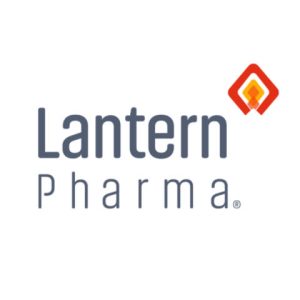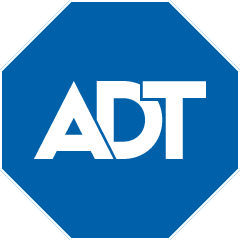Stocks & Home Sales Nosedive As Interest Rates Spring Upward – $COST $EPRX $PTON $T $TSLA $VIX Rise!

Wall Street experienced a significant downturn on Wednesday, October 23, 2024, with major indices tumbling amid rising Treasury yields, consolidation after recent gains, and weakness in mega-cap stocks. Yes indeed, rising Treasury yields played a significant role in Wednesday’s market downturn, with the 10-year yield reaching as high as 4.255% before settling at 4.24%. This upward trend in yields dampened investor enthusiasm for stocks, as higher yields often make fixed-income investments more attractive. Additionally, the market experienced further consolidation after an extended winning streak, with major indices retreating from recent record highs The weakness in Large-cap stocks further contributed to the overall market decline, particularly affecting the consumer discretionary, information technology, and communication services sectors.
* The Dow Jones Industrial Average fell 409.94 points to 42,514.95
* Nasdaq dropped 296.47 points to 18,276.65
* S&P 500 declined 53.78 points to 5,797.42
* CBOE Volatility Index (VIX) rose 6.7% to 19.41, reflecting increased market uncertainty[1]
The little guy, the Russell 2000, also moved lower by .79% today as did the micro minis as the iShares Micro-Cap ETF (IWC) closed at $124.82, down -1.16%. The SPDR S&P 500 Biotech ETF (XBI) managed to end in the red by -1.63% today, but remains up +47.68% over the last year. Oil prices closed at $71.05/bbl, -.96%, Gold prices closed at $2,729.00/oz down 1.12%, silver closed at $33.885/oz, down -3.30% & Bitcoin (BTC) closed at $66,508.93, -1.35%.
Economic Data Highlights
Existing home sales decreased 1% M/M in September to a seasonally adjusted annual rate of 3.84 million, falling short of the 3.9M consensus estimate. While more inventory is becoming available, the market remains tight, evidenced by ongoing increases in median home prices. The MBA Mortgage Applications Index also dropped 6.7% Wk/Wk, with refinance applications down 8% and purchase applications declining 5%. These figures reflect the ongoing challenges in the housing market, as rising interest rates continue to impact both buyers and homeowners looking to refinance.
Big Company and Sector Performance
Consumer discretionary, information technology, and communication services sectors bore the brunt of Wednesday’s market decline. Tesla and Amazon.com dragged down the consumer discretionary sector, with Tesla falling 2.0% ahead of its earnings report after the close and Amazon dropping 2.6%. Apple’s 2.2% decline on iPhone 16 demand worries, coupled with NVIDIA’s 2.8% drop, weighed heavily on the information technology sector. Meta Platforms and Alphabet led the communication services sector lower, falling 3.2% and 1.4% respectively.
* McDonald’s shares plummeted 5.2% amid reports of an E. coli outbreak
* Enphase Energy (-14.9%) and Seagate Technology (-8.1%) faced significant selling pressure post-earnings
* AT&T (T) bucked the trend with a 4.6% gain following its earnings report
* Real estate and utilities sectors were the only gainers, each up 1%
* Boeing fell 1.8% after its earnings report and cautious outlook from the new CEO
Tesla’s Earnings Rollercoaster Ride
Tesla’s Q3 after the mraket close today earnings report hit the market like a lightning bolt from one of their electric vehicles, sending the stock soaring faster than a SpaceX rocket in after-hours trading. Investors, who had been as anxious as cats in a room full of rocking chairs, breathed a collective sigh of relief as the company beat earnings expectations and reported higher gross margins.
The real showstopper, however, was the news that Tesla’s more affordable EV is on track for production next year, promising to bring electric dreams to the masses. This announcement had Wall Street buzzing louder than a swarm of battery-powered bees. Despite some mixed results, including revenue slightly missing the mark, Tesla’s stock jumped nearly 8% after hours, proving once again that in the world of EVs, Elon Musk’s company can still generate more excitement than a hamster on an electric wheel. With improved gross margins of 19.8% (beating expectations of 16.8%) and the promise of “slight growth” in vehicle deliveries for 2024, it seems Tesla is charging full speed ahead, leaving skeptics in its electric dust.
Peloton’s Costco Adventure
In a twist that has fitness enthusiasts and bargain hunters alike doing double takes, Peloton (PTON, $6.27, +10.97%) is bringing its sweat-inducing, wallet-lightening bikes to the land of $1.50 hot dogs and 30-packs of toilet paper. From November 1 to February 15, select Costco (COST, $899.17, +.64) stores and the retailer’s website will be graced with Peloton’s presence, offering members a chance to snag a high-end exercise bike alongside their industrial-sized jars of mayonnaise.
This unexpected pairing is like finding a gourmet truffle in your bulk bag of trail mix. Costco members can pedal home with a Peloton Bike+ for $1,999 in-store or $2,199 online, saving a cool $496 and $296 respectively off the regular price. It’s as if Santa traded his sleigh for a stationary bike and decided to come early this year.
Dion Camp Sanders, Peloton’s chief emerging business officer, quipped that this partnership is “only for a limited time because fitness is a seasonal category for the company.” Apparently, even exercise equipment needs a vacation. This move signals Peloton’s desire to make their products more accessible, perhaps realizing that not everyone has a spare room dedicated to becoming the next Tour de France champion.
As Peloton navigates the post-pandemic fitness landscape, this Costco collaboration could be just the protein shake it needs to pump up sales. Who knows? Maybe next year we’ll see Peloton instructors shouting motivational phrases while handing out free samples. “Push harder! Feel the burn! Would you like to try this bite-sized quiche?”
Upcoming Economic Events
Thursday’s economic calendar promises to keep investors on their toes with key data releases that could sway market sentiment. At 8:30 eastern, the Weekly Initial and Continuing Jobless Claims will provide insights into the labor market’s health. Following closely at 9:45 eastern, the Preliminary October S&P Global U.S. Manufacturing and Services PMIs will offer a snapshot of economic activity across crucial sectors.These reports will be closely watched for signs of economic resilience or potential weaknesses that could influence Federal Reserve policy decisions and market trajectories in the coming weeks.
VP Watchlist Updates

Shares of Lantern Pharma (LTRN), an artificial intelligence (“AI”) company developing targeted and transformative cancer therapies using its proprietary RADR® AI and machine learning (“ML”) platform with multiple clinical stage drug program, closed at $3.37, -.59% and is up 24.13% over the last year.
On October 22. Lantern announced that they will be participating in and hosting two webinars that are open to the public during October. Lantern expects to discuss in detail how big data and AI are being leveraged to advance the development of multiple indications for drug-candidates LP-184 and LP-284 during the “Leveraging Artificial Intelligence to Develop Therapies for Brain and Childhood Cancers”. Lantern will also discuss how their algorithm for blood-brain-barrier (BBB) penetrability played a critical role in supporting the development of LP-184 across multiple CNS cancer indications, including GBM. This webinar will be hosted by Tribe Public and feature Panna Sharma, Lantern’s President and CEO. Both LP-184 and LP-284 are currently enrolling patients in Phase 1 trials. Webinar Wednesday will focus on Lantern’s AI-focused collaboration with Actuate Therapeutics, a clinical-stage biopharmaceutical company that went public in August 2024. Andrew Mazar, Ph.D., Chief Operating Officer of Actuate, and Lantern’s computational biologist Joseph McDermott, Ph.D., will discuss the multi-year research and development collaboration that accelerated the development of Actuate’s lead drug candidate, Elraglusib.
Links to Register for October Webinars
-
Tribe Public Webinar on October 28, 2024 – https://bit.ly/3BVgPb5
-
Lantern Pharma Webinar Wednesday on October 30, 2024 – https://bit.ly/3YsL2XN
On October 15, Lantern Pharma announced that the FDA has granted Fast Track Designation for investigational drug candidate, LP-184, for treatment of Glioblastoma. LP-184 is currently in a Phase 1A clinical trial designed to evaluate the safety and tolerability of the synthetically lethal investigational drug candidate in a broad range of solid tumors, including Glioblastoma (GBM). LP-184 was optimized and advanced in part with Lantern’s AI platform, RADR®, to aid in the validation of mechanisms that could be exploited in the clinical setting to eradicate challenging cancers, and uncover insights in targeted patient populations. RADR® is Lantern’s AI platform for cancer therapy discovery, development and rescue with over 100 billion data points and aiding in the development of both Lantern’s portfolio and development initiatives with Lantern’s collaborators. Fast Track Designation is designed to expedite FDA review of important new drugs to treat serious conditions and fill an unmet medical need. Fast Track Designation for LP-184 (STAR-001) recognizes Glioblastoma (GBM) as a serious condition impacting more than 13,000 U.S. adults each year and approximately 300,000 globally. A phase 1b/2a clinical trial for recurrent GBM is targeted to start in late 2024/early 2025. LP-184, which will be developed as STAR-001 for CNS and other neuro-oncology indications by Starlight Therapeutics, a wholly owned subsidiary of Lantern Pharma, has the potential to be the first new drug for treating GBM in more than 20 years.
On September 23, Lantern announced that the company has been granted three rare pediatric disease designations (RPDD) by the FDA. Lantern was granted these rare pediatric disease designations in: malignant rhabdoid tumors (MRT), rhabdomyosarcoma (RMS), and hepatoblastoma. Rare pediatric diseases are defined by the FDA as serious or life-threatening conditions primarily affecting children under 18, with fewer than 200,000 cases in the U.S. A key benefit of obtaining a RPDD is the potential to receive a priority review voucher following FDA approval of a product with RPDD if the marketing application submitted for the product satisfies certain conditions, including approval prior to September 30, 2026 unless changed by legislation. These vouchers, often called “golden tickets,” can significantly expedite the review process for future NDAs or biologic license applications, reducing the standard review time from about ten months to six. Sponsors can either use these vouchers themselves or sell them to other companies. These vouchers, in the recent past, have commanded sales prices of approximately $100 million USD.

Panna Sharma is the President, CEO, and Board Member of Lantern Pharma Inc.
“At Lantern, we’re harnessing AI and data-driven approaches to revolutionize cancer drug development, aiming to dramatically reduce costs, accelerate timelines, and enhance precision in bringing new therapies to patients. Our recent breakthrough in identifying three additional, high-potential indications for LP-184 in pediatric cancers exemplifies this progress. We believe that ‘AI for good’ should address both blockbuster opportunities as well as rare, often overlooked pediatric cases. The FDA’s Rare Pediatric Disease designation for these three potential programs is a testament to this commitment. We’re acutely aware that patients and their families are relying on innovators like us to speed up therapy development. These designations mark a crucial step forward in advancing our expanding portfolio of pediatric programs targeting these devastating and rare cancers. It reinforces our dedication to transforming hope into tangible solutions for those who need them most,” stated Panna Sharma, CEO and President of Lantern Pharma.
On August 9, announced operational highlights and financial results for the second quarter 2024, ending June 30, 2024 highlighting the following:
- Active clinical trials across three AI-guided drug candidates with additional ADC-based preclinical molecules in evaluation for development.
- Preliminary patient data and clinical readouts for Phase 2 LP-300 Harmonic™ Trial released showing an 86% clinical benefit rate in the initial 7 patient safety lead-in cohort.
- Issued a Certificate of Patent by the Japanese Patent Office directed to Lantern Pharma’s drug candidate LP-284, including claims covering the new molecular entity.
- Phase 1 clinical trials for both synthetic lethal drug candidates, LP-184 and LP-284, continue to advance with no dose-limiting toxicities observed in any of the patient cohorts enrolled and over 40 patients dosed to-date.
- Achieved significant advancement towards key milestone in the development of molecular diagnostic for use with drug candidate LP-184 in future oncology clinical trials to improve patient selection and stratification.
- Launched strategic drug development collaboration leveraging our AI platform, RADR®, with Oregon Therapeutics to optimize the development of first-in-class drug candidate XCE853 – a potent inhibitor of cancer metabolism.
- Starlight Therapeutics, a wholly owned subsidiary of Lantern Pharma focused on CNS and brain cancers advanced with initiating site selection and feasibility for a Phase 1B/Phase 2 trial in recurrent GBM with drug candidate, STAR-001.
- Launched Webinar Wednesdays, a webinar series that focuses on the areas of artificial intelligence and oncology drug development with leading physicians, scientists and Lantern collaborators.
Approximately $33.3 million in cash, cash equivalents, and marketable securities as of June 30, 2024.

Modular Medical, Inc. (NASDAQ: MODD, $2.17, -2.69% & is up +119.19% over the last year), an insulin delivery system technology company preparing to launch a market expansion product with a more accessible, easier to prescribe, and easier to pay for and live with technology. Using its patented technologies, the company seeks to eliminate the tradeoff between complexity and efficacy, thereby making top quality insulin delivery both affordable and simple to learn. Their mission is to improve access to the highest standard of glycemic control for people with diabetes taking it beyond “superusers” and providing “diabetes care for the rest of us.” Modular Medical was founded by Paul DiPerna, a seasoned medical device professional and microfluidics engineer. Prior to founding Modular Medical, Mr. DiPerna was the founder (in 2005) of Tandem Diabetes and invented and designed its t:slim insulin pump. More information is available at https://modular-medical.com.
In October, Modular’s CEO was interviewed by Carole Sullivan on the Today In Nashville program affiliated with Channel 4 WSMV. The segment is called “New Tools for Treating Diabetes by Modular Medical.” You may watch the video now at this link.
On September 18, Modular Medical announced the issuance of U.S. Divisional Patent Application No. 17/968,599. “The issuance of this patent and the associated claims represent a major step in our efforts to protect the intellectual property in the MODD1 pump platform,” stated Jeb Besser, CEO of Modular Medical. “Some of the key features of our novel, low-cost and accurate insulin delivery technology are now protected by this important issued U.S. patent, which we believe represents a significant new barrier to entry. Our eight families of patents around our pump are an important part of our strategic value and market positioning, and we look forward to announcing further issuances on our portfolio in the future.”
On September 11, Modular Medical’s CEO Jeb Besser presented at Tribe Public’s Webinar Presentation and Q&A Event titled “Diabetes, Obesity, GLP-1, & The MODD-1 Opportunity.” The event video has now been viewed over 47,000 times and can now be viewed below:
On Wednesday, September 4, Modular announced it has received U. S. Food and Drug Administration (“FDA”) clearance to market and sell its MODD1 pump in the United States. With its commercial manufacturing infrastructure substantially established, the Company anticipates the MODD1 should be available for sale in early 2025.

James (Jeb) Besser, CEO of Modular Medical (NASDAQ: MODD)
“For too long, the benefits of superior glycemic control achieved by insulin pumps have, due to cost and complexity, been restricted to only the most sophisticated, motivated and well-insured users. The goal of Modular Medical has always been to change this by making diabetes technology accessible and affordable to underserved communities. We seek to make the experience of going ‘on a pump’ simpler and less intimidating and to widen the base beyond the current pump users,” said Jeb Besser, CEO of Modular Medical.

Paul DiPerna, Chairman and President of Modular Medical
“I want to thank our employees for their hard work and dedication in bringing this product to the market and our shareholders for their ongoing support of the Company. We will continue to deliver on our mission of enabling ‘diabetes care for the rest of us’ and delivering on the needs of all patients and clinicians,” added Paul DiPerna, Chairman and President of Modular Medical.
 Shares of Indaptus Therapeutics, Inc. (Nasdaq: INDP) closed at $1.69, -10.58% and is now up +18.18% over the last 5-days. Indaptus is a company with the ability to harness both the body’s innate and adaptive immune responses, believes that they are uniquely positioned to revolutionize the treatment of cancer and certain infectious diseases.
Shares of Indaptus Therapeutics, Inc. (Nasdaq: INDP) closed at $1.69, -10.58% and is now up +18.18% over the last 5-days. Indaptus is a company with the ability to harness both the body’s innate and adaptive immune responses, believes that they are uniquely positioned to revolutionize the treatment of cancer and certain infectious diseases.
Indaptus today announced a clinical supply agreement with BeiGene (BGNE). Building on Indaptus’ preclinical observation that Decoy20, when combined with a PD-1 inhibitor, induced complete cancer regressions and immunological memory in animal models, Indaptus plans to advance human clinical evaluation of the combination of BeiGene’s anti-PD-1 antibody, tislelizumab, with Indaptus’ Decoy20, a novel treatment designed to induce a broad immune response to fight cancer. Indaptus’ Decoy20 is being studied for its potential to treat a variety of cancers, including liver, colon, and pancreatic. PD-1 inhibitors are considered key agents in modern immunotherapy and have produced impressive response rates in some patients. In preclinical studies, Decoy20, when used in combination with a PD-1 inhibitor and an oral non-steroidal anti-inflammatory agent, demonstrated tumor eradication rates of 80-100%. Indaptus hopes to find a treatment combination that similarly improves outcomes in humans.
“PD-1 inhibitors have proven to be meaningful in treating multiple types of cancer. We are optimistic that we can improve outcomes by broadly and safely stimulating the immune system in a way that could enhance overall effectiveness of currently approved cancer treatments,” said Jeffrey Meckler, CEO of Indaptus Therapeutics. “This agreement with BeiGene marks a significant step forward in the search for curative cancer treatments for some of the most challenging cancers. Additionally, we view this as a significant milestone for Indaptus.”
As part of the agreement, BeiGene will provide Indaptus with access to its PD-1 inhibitor as well as technical expertise in order to accelerate the first clinical trial combining the two investigational drugs. Decoy20 utilizes Indaptus’ unique “Pulse-Prime” approach, which induces a strong and broad boost to the immune system but clears rapidly with only transient and tolerable side effects.
“Decoy20’s ability to synergize with a variety of approved therapeutic modalities, including checkpoint therapy, makes it a promising partner for several novel combination approaches,” said Dr. Michael Newman, Founder and Chief Scientific Officer at Indaptus. “This trial could reshape the checkpoint therapy landscape, as it will be the first time a short but broadly acting agent such as Decoy20, utilizing our innovative Pulse-Prime approach, will be tested in combination with a PD-1 inhibitor.”
On October 15, Indaptus Therapeutics, Inc. (Nasdaq: INDP) provided an update regarding key clinical advancements in its Phase 1 trial of lead drug candidate Decoy20. The Safety Review Committee examined weekly administration data at the lower Decoy20 dose and cleared unrestricted enrollment of patients at this dose. The safety profile observed to date remains aligned with Decoy20’s expected mechanism of action. The most clinically relevant treatment-related adverse events include Grade 2 Infusion Related Reaction and Grade 2 Hypotension, both of transient duration.

Dr. Roger Waltzman, Indaptus Chief Medical Officer
“Unrestricted enrollment of patients at the lower Decoy20 dose will enable us to gather more safety and efficacy data, which is crucial for assessing the full potential of Decoy20. The data will guide how we initiate combination therapy next year, a critical phase in advancing Decoy20,” said Dr. Roger Waltzman, Indaptus Chief Medical Officer.
Jeffrey Meckler, Chief Executive Officer, added, “We continue to gather robust data on Decoy20, which remains consistent with our expectations from preclinical studies. We believe the continuation of this trial, and the eventual initiation of combination therapy studies presents an important opportunity to have a potentially significant impact on cancer immunotherapy. We look forward to sharing these results in the coming months.”

Eupraxia Pharmaceuticals (EPRX, $2.50, +6.84% and is up +12.80% in the aftermarket at $2.82) is a clinical-stage biotechnology company leveraging its proprietary DiffuSphere™ technology to optimize drug delivery for applications with significant unmet need. The Company strives to provide improved patient benefit and has developed technology designed to deliver targeted, long-lasting activity with fewer side effects. DiffuSphere™, a proprietary, polymer-based micro-sphere technology, is designed to facilitate targeted drug delivery, with extended duration of effect, and offers multiple, highly tuneable pharmacokinetic (PK) profiles. This investigational technology can be engineered for use with multiple active pharmaceutical ingredients and delivery methods.

On October 15, Eupraxia announced that Lancet Rheumatology, a leading independent, peer-reviewed journal committed to sharing progressive content relevant to rheumatology specialists worldwide, recently published Eupraxia’s Phase 2 data from its SPRINGBOARD trial evaluating EP-104IAR for the treatment of knee osteoarthritis. Publication of Eupraxia’s Phase 2b data in Lancet Rheumatology, a distinguished and respected journal, raises the profile of EP-104IAR. As outlined in Lancet Rheumatology, Eupraxia’s EP-104IAR imparts clinically significant and durable pain relief, while also having minimal changes in glucose and cortisol, along with stable fluticasone proportionate concentrations in plasma. The U.S. Centers for Disease Control and Prevention estimates that knee osteoarthritis affects more than 30 million people in the U.S. alone. You may read the Lancet Publication regarding Eupraxia at this link.
Eupraxia is presented a poster at the United European Gastroenterology (“UEG”) Week 2024 held in Vienna, Austria on October 12-15, 2024.
On, September 11, Eupraxia announced additional positive clinical data from its RESOLVE Phase 1b/2a trial, which is evaluating the safety and efficacy of EP-104GI as a treatment for eosinophilic esophagitis (“EoE”). The results announced today from the fourth cohort of the RESOLVE trial, using Eupraxia’s DiffuSphere™ technology for EoE, are derived from twelve 2.5 mg injections of EP-104GI (total dose of 30 mg) administered to less than two-thirds of each patient’s lower esophagus. The data show:
- Straumann Dysphagia Index (“SDI”)1, a patient-reported outcome measure designed to assess symptom severity, was lower for all three patients post-administration with peak reductions up to four points (67% from baseline). At 12 weeks post-administration, SDI was reduced by a mean of 45% or 3.3 points – a level comparable with currently approved therapies.
- Eosinophilic Esophagitis Histology Scoring System (“EoEHSS”)2 scores, which evaluate the severity and extent of EoE, showed the largest percent reduction of any cohort to date, with a mean 39% reduction in Composite Stage and a mean 37% reduction in Composite Grade at 12 weeks – a level comparable with currently approved therapies.
- Using data from four biopsy sites, which is consistent with the U.S. Food and Drug Administration (“FDA”) Guidance for Developing Drugs for the Treatment of EoE, the mean reduction in Peak Eosinophil Counts (“PEC”)3 was 67% at 12 weeks.

Shares of ADT Inc. (ADT), a leading provider of monitored security and automation solutions for residential and small business customers in the United States and Canada, closed at $6.92, -.57% after recently establishing a new 52-wk high of $7.92 during intraday trading and will release its Q3 2024 results on Thursday, October 24.
On Aug. 21, ADT announced the appointment of Suzanne Yoon to the Company’s Board of Directors as an additional independent director. Yoon is the founder and managing partner of Kinzie Capital Partners, a Chicago-based private equity firm. In 2017, she launched Kinzie and currently serves as the Chair of its Investment and Management Committees. Prior to founding Kinzie, Yoon held senior roles at Versa Capital Management, CIT Group and LaSalle Bank/ABN AMRO. She is a current member and former Chair of the National Philanthropic Trust Board of Trustees, the largest independent donor advised fund manager in the world with approximately $40 billion under management and is a member of the first-ever Women’s Advisory Board for the Chicago Bears.
Quote of the Day
Videos
Post View Count : 501














